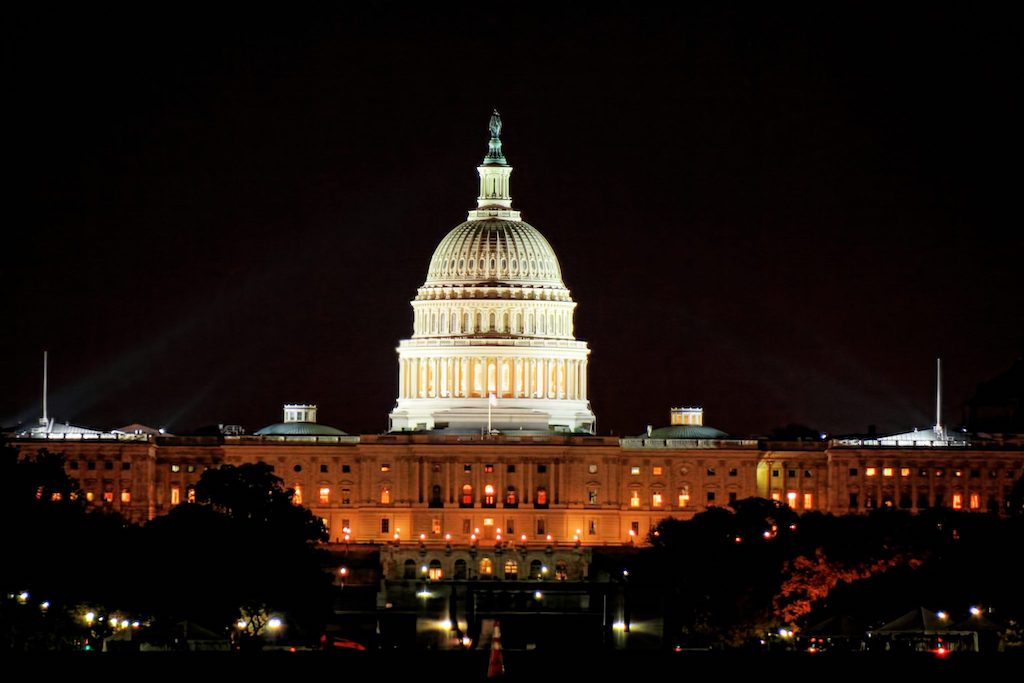Brand USA Pleads Its Case to Congress as Funding Hangs in the Balance

Skift Take
U.S. tourism officials testified in front of the House Committee on Energy and Commerce on Tuesday afternoon. The U.S. Travel Association is urging Congress to find a way to renew the country's destination marketing funding before the end of this year, but time is running out.
The funding for the program currently comes from the fee some visitors to the U.S. pay in the online application for the visa waiver program, as well as matching contributions from the private sector. While that revenue source will not officially expire until Sept. 30 2020, the fact that Brand USA is a public-private partnership — not a government program, which can be renewed retroactively — means renewing its funding a year in advance is necessary to prevent disruption, including job losses. "It needs certainty to move forward," Tori Barnes, executive vice president of public affairs and policy for trade group U.S. Travel, said to Skift ahead of the hearing.
As Barnes noted in her testimony, "If Brand USA were eliminated, the United States would be the only top-20 country destination without a national travel promotion budget. With years of studies in hand measuring Brand USA’s tremendous effectiveness, the program is presently jeopardized by the uncertainty over its future."
Brand USA CEO Christopher Thompson, who also testified, said that "every day that passes without access to future funding weakens our ability to make the type of long-term strategic investments, which deliver Brand USA’s impressive results."
The funding battle comes as the U.S. sees declining market share in global travel, a dip in international visitors particularly from China, and also when the the country arguably needs the soft diplomacy that comes from tourism more than ever. Barnes cited a survey that found that 74 percent of international visitors leave with a more favorable opinion of the U.S.
In addition, times are tough for state-level destination marketers too, with Pure Michigan's funding eliminated by the state's governor and Visit Florida forced into a position of singing for its supper — yet again. Part of Brand USA's remit, Barnes told Skift, is to market the whole nation, including those places that don't have adequate resources promote themselves to international travelers.
While funding battles around tourism often have a whiff of politics, Brand USA's funding woes have less to do with partisan division and more to do with the realities of 2019 Washington. Its funding was diverted — somewhat haphazardly — in Feb. 2018 to a general fund as part of the budget cap deal. U.S. Travel had hoped to renew the funding in early 2019 when the government reopened after a shut-down, but the legislation passed to do so was a "clean bill," with no add-ons allowed.
In July, House representatives Peter Welch (a Democrat from Vermont) and Gus Bilirakis (a Republican from Florida) introduced the Travel Promotion, Enhancement, and Modernization Act of 2019 to reauthorize the funding until 2027. While this is a key step — and there have been signs of broad bipartisan support — it still lacks is a legislative vehicle to take it to the finish line.
"We’re looking for any ride essentially," Barnes said, referring to either tacking the bill onto a larger package or working it through Congress as a stand-alone bill. The latter option is more difficult, Barnes said, given the Senate's stricter procedural rules around what gets floor time, and the lack of remaining time in the year.
"There are not many bills that are passed easily in the midst of all the other things happening," Barnes said. "Unfortunately it's taken longer than we would have liked."
In September, 16 CEOs of major travel companies including Hilton, Carnival, and American Express signed a letter expressing support for the program. They noted that the failure to reverse the contraction of international visitors to the U.S. by reauthorizing Brand USA would "represent a huge missed opportunity at a time when the U.S. trade balance and sustaining our economic expansion rightly lie at the very heart of our public policy discourse."
There's another problem: an election looms. Technically, the same bill can be passed next year as the same Congress will be sitting. But an election year generally means there is less political will and opportunity for Congress to get things passed.
Brand USA, meanwhile, hangs in the balance.




